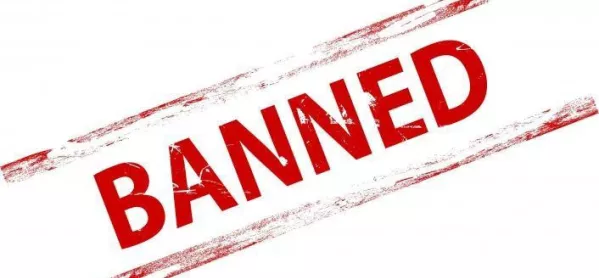A media teacher who changed or invented marks for his students has been banned from the profession.
He will be able to apply to review the order in three years.
David Moore worked as a media teacher at Swanlea School in London from September 2018 to December 2019.
He was found guilty of unacceptable professional conduct by a panel of the Teaching Regulation Agency.
Moderation concerns
Mr Moore’s case started when his school was informed by exam board OCR in June 2019 that their moderator had flagged plagiarism concerns on some candidates’ work.
As an investigation took place at the school, Mr Moore was referred to OCR’s malpractice committee and barred from all involvement in the exam board’s exams and assessments for a period of three years.
He resigned from the school at the end of 2019.
During the investigation, Mr Moore came forward to explain the actions he had undertaken with the submissions of one or more of his pupils’ work. His admissions constituted evidence proving allegations against him.
According to the report, Mr Moore took a previous student’s work and submitted it as part of the current assessment.
He admitted during the investigation: “Where marking was entirely off, based on the idea that I could find the work they had at school, I used other students’ work to substitute. This was done for three students.”
Mr Moore also submitted homework tasks in the place of work that should have been completed in assessment conditions.
The panel report quotes him saying: “I became aware of missing work and poor marking on my part when it came to completing all of the URS forms, subsequently.
“This led me to using homework tasks they had completed outside of submission to compensate for missing work or overgenerous marking.”
He also modified some of his pupils’ assessment tasks.
‘Considerable stress’
Mr Moore admitted that his conduct lacked integrity and was dishonest. In a statement in 2019, which the panel used to understand Mr Moore’s state of mind at the moment of making these decisions, he explained that the students were on a two-year course in one year, which created considerable stress.
And while the report quotes an Individual A, who was investigating the case for the school, saying that Mr Moore had made a “genuine irrational judgment in a moment of panic”, the panel stated that there was evidence to suggest that Mr Moore’s actions were deliberate.
The report reads: “It was apparent to the panel that Mr Moore’s actions were deliberate given his modification, augmentation of work and amendment of marks with the intention of covering up discrepancies between his marking and the work produced.
“This was a complex set of actions and the extent of those actions taken by Mr Moore was further evidence of his dishonest intention.”
The panel found that the pressure Mr Moore could have been under could not “excuse the level of dishonesty that Mr Moore engaged in”, noting that the he had also received training from the examination board on how to assess and moderate.
The panel also found that Mr Moore did not act under duress. While Mr Moore had explained that the pressure of delivering a two-year course in one year had left him unable to share the pressure he was under, the panel saw no evidence of Mr Moore raising these concerns.
The report reads: “The panel did not, in any event, consider this to constitute duress since he was not compelled to take the course of action he chose, and there were other more appropriate courses of action available to him in raising his concerns with colleagues and seeking their support.”




